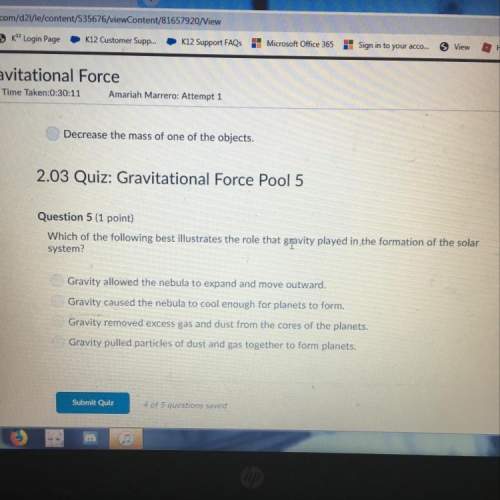
Chemistry, 02.12.2019 23:31, hebibova2016
Hess's law can be used to calculate reaction enthalpies for hypothetical processes that can't be carried out in the laboratory. set up a hess's law cycle that will let you calculate δ h∘ for the conversion of methane to ethylene: 2ch4(g) → c2h4(g)+2h2(g) you can use the following information: 2c2h6(g)ch4(g)c2h4(g)h2o(l),+++7o2( g)2o2(g)h2(g)→→→4co2(g)co2(g)c2h6(g ),++6h2o(l),2h2o(l),δh∘=−3120.8 kjδh∘=−890.3 kjδh∘=−136.3 kjδh∘f=−285.8 kj/mol
express your answer to four significant figures and include the appropriate units.

Answers: 2
Other questions on the subject: Chemistry


Chemistry, 22.06.2019 05:50, zaleemawhite
Significant figures are digits read directly from the measuring instrument plus one more digit, which is __ by the observer.
Answers: 2

Chemistry, 22.06.2019 12:00, carvajalj2520
Explain what happens at the saturation point when adding salt to water at room temperature.
Answers: 1
Do you know the correct answer?
Hess's law can be used to calculate reaction enthalpies for hypothetical processes that can't be car...
Questions in other subjects:


Advanced Placement (AP), 29.10.2019 00:31

Mathematics, 29.10.2019 00:31



Biology, 29.10.2019 00:31

Biology, 29.10.2019 00:31

Mathematics, 29.10.2019 00:31


History, 29.10.2019 00:31







